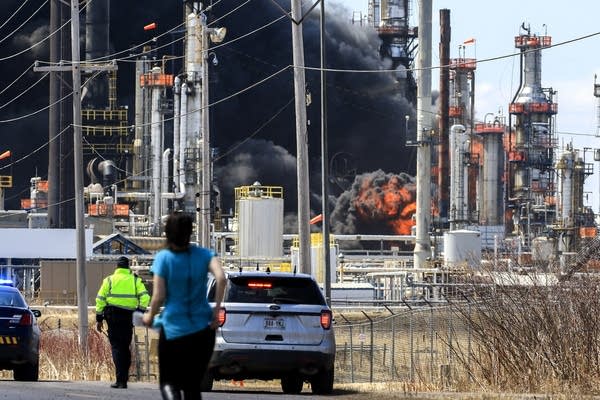Feds to probe metal strength in Superior refinery blast

A large fireball erupts during a series of fires and explosions at the Husky Energy refinery in Superior, Wis. Thursday, April 26, 2018.
Clint Austin | Duluth News Tribune
Go Deeper.
Create an account or log in to save stories.
Like this?
Thanks for liking this story! We have added it to a list of your favorite stories.


